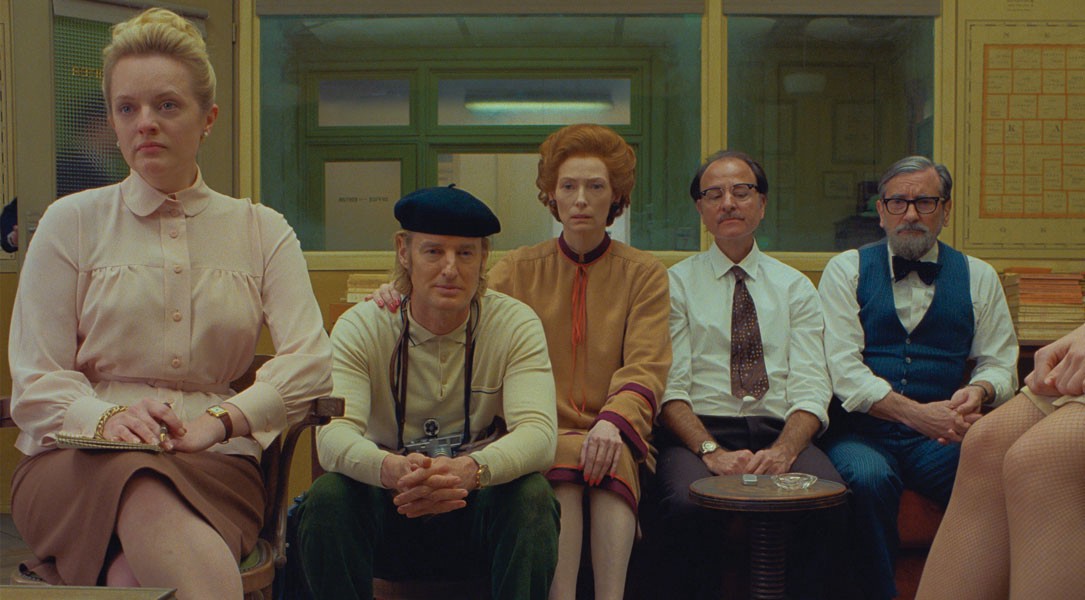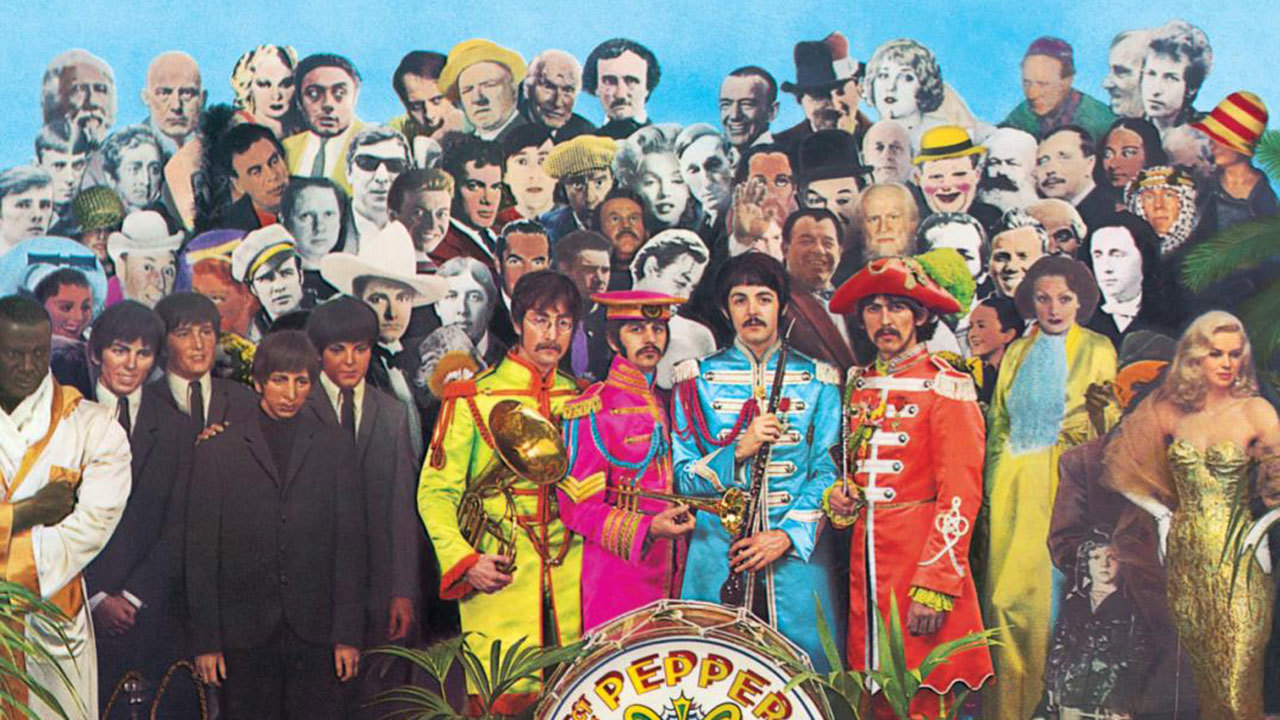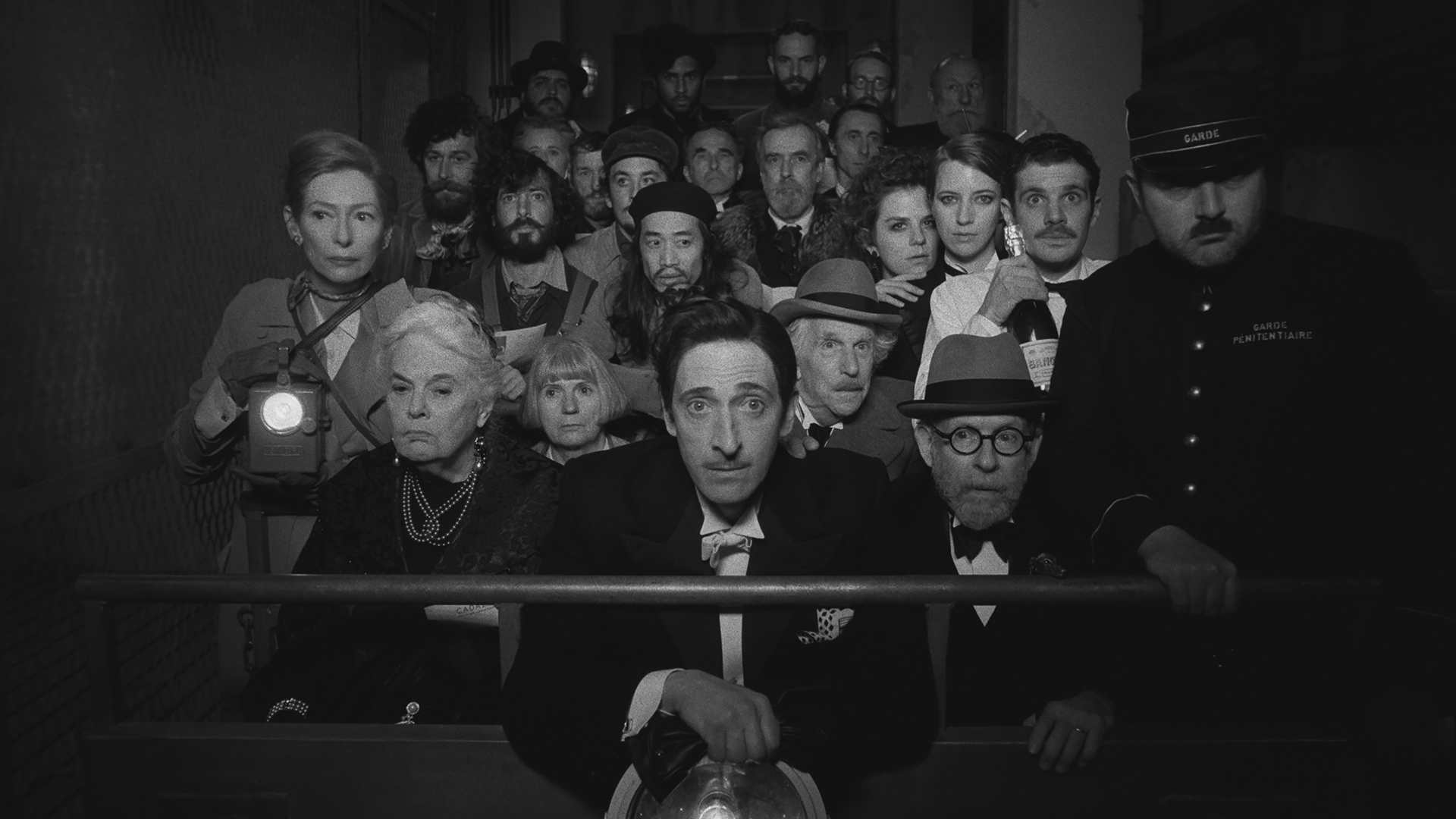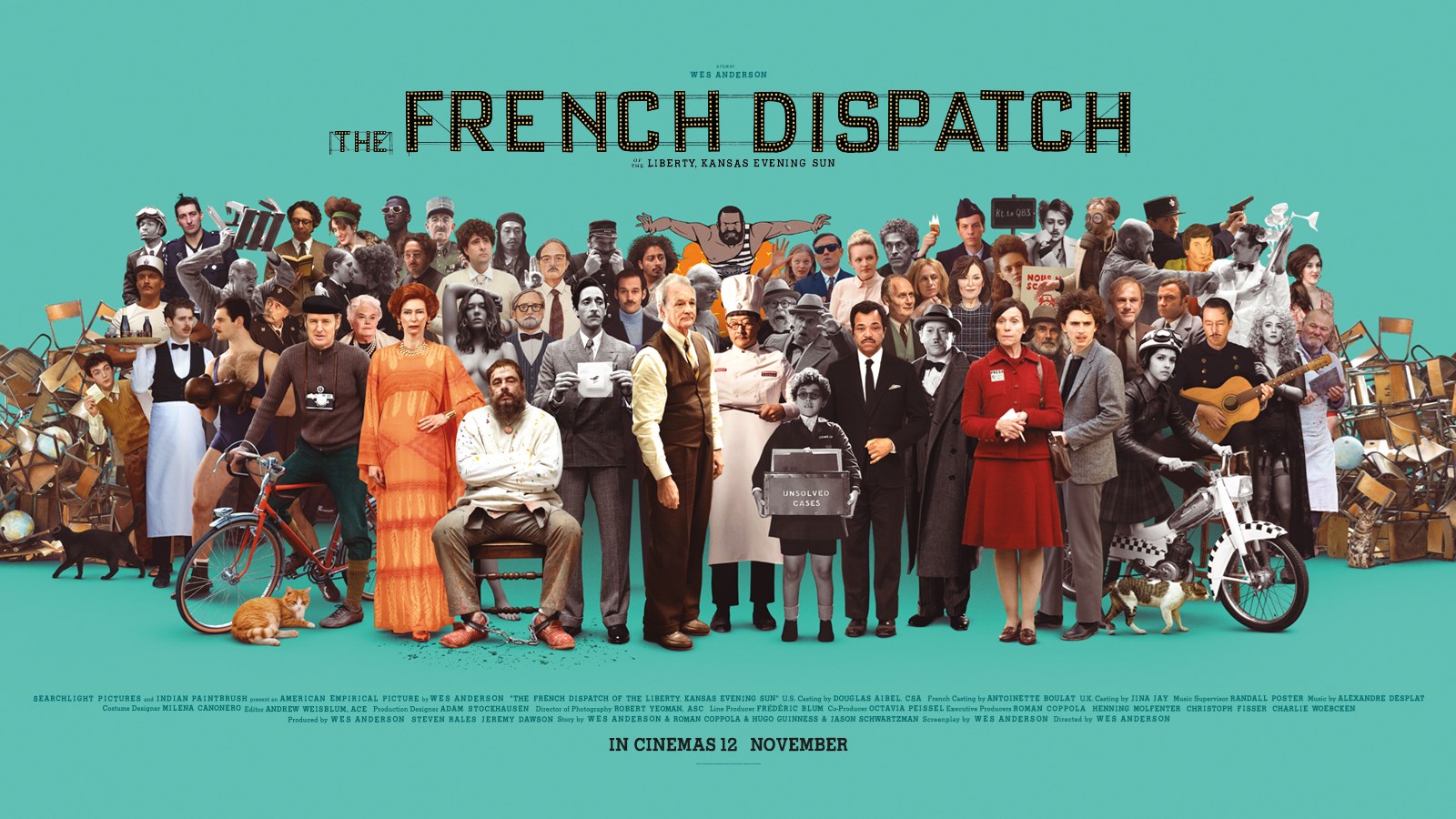In Retrospect: The French Dispatch




Film
The eighth studio album recorded by The Beatles was the groundbreaking Sgt. Pepper's Lonely Hearts Club Band, which is perhaps the foremost achievement of their esteemed career. Rolling Stone considers it "an unsurpassed adventure in concept, sound, songwriting, cover art and studio technology," while Pitchfork notes that "the record's reputation and sense of ambition ushered in the album era." In terms of its influence, Sgt. Pepper served as a generational breaking point for when pop culture entertainment and rock music fully ascended and amalgamized with the highest forms of art, wherein counterculture had fully infiltrated and transformed mainstream society. The reverberations of this cosmic blip happened at the hand of four goofballs from Liverpool, England thanks to their boundless and fearless creativity.
As a concept album, Sgt. Pepper meanders around from one character to the next; it's a fluent blend of interwoven stories and styles that wittingly blurs any and all discernible lines that might help distinguish between what is real and what is imagined. From one dreamscape to the next, fully-realized vignettes abrubtly end for no apparent reason, and any fleeting moments of narrative structure wither away with minimal transition or explanation. As an anthological work, where everything is made up and the points don't matter (for all you Whose Line Is It Anyway? fans out there), the exposition is for the most part purely decorative. In this swirling world of colors and key changes, there are inevitably more questions than answers come journey's end. But after all its idiosyncratic pieces are connected together and finally seen in unison, the whole experience feels less like a layered labyrinth and more like a contemplative sedative -- so while it's a lot to digest, it's easy on the senses (as is often the quandary for aesthetes in their appreciation of worthwhile art).
HA-HA-HA-HA!! Wait a second. You'll have to excuse me -- the last two paragraphs might very well be the most pretentious thing I've ever written. Let's be honest, I just spent at least three minutes trying to suss out the Beatles and Sgt. Pepper as if I have any valuable insights about musical composition or artistic intention. Just so we're clear, I'm still an uncultured pleb who enjoys domestic light beer and occasionally laughs at mind-numbingly stupid insurance commercials while watching game shows on broadcast television. I'll always be a heathen scrub, and don't you ever forget it. But putting aside the fact that I just tried to pass as a douchey pseduo-intellectual music poindexter/poser, it's safe to say that my description of Sgt. Pepper is a perfectly relevant talking point for today. One of our preeminent working filmmakers has a true affinity and fervor for the Beatles' aesthetic and craft, and his most recent feature film undoubtedly aspires for the same level of rigorous abstraction and otherworldly zaniness reminiscent in the very best of the Beatles' catalogue.
The wily, wily Wes Anderson has metamorphosed into what might be his final form, as demonstrated by his latest project, The French Dispatch. While I'm not necessarily ready to pronounce it his best movie, it is evident that his ode a bygone era of journalism, as well as the twee sensibilites of The New Yorker, brought out an even more 'Wes Anderson-y' Wes Anderson. In The French Dispatch, his kinetic energy is so dizzying that at times it felt better to just relax, let it wash over you, and accept the fact that keeping pace with his propulsive imagination is wholly implausible. His obsessive attention to micro details and instrinsic sense of tempo has raised his floor (and ceiling) as a creator yet again. It's safe to say that as a filmmaker, he's leveled up in more ways than one.
SPOILERS APLENTY

The French Dispatch is an American magazine set in the fictional 20th-century French town of Ennui-sur-Blasé, whose illustrious editor, Arthur Howitzer Jr., has just died of a sudden heart attack. As detailed in his will, the magazine will immediately cease publication following one last farewell issue, which will be an assorted collection of stories that he helped edit prior to his death; it will also include his obituary.
Though he is primarily known for his distinctive visual and stylistic flourishes, in The French Dispatch, Anderson fully commits to simulating an op-ed-esque experience that comes from reading a long-form, short-story magazine (like that of The New Yorker). The script emulates the structural spirit of a nesting doll, and each storyline serves to add further context to the film's thematic core. By compartmentalizing the plot, there is more melodramatic landscape and headspace to explore -- plus why have a single embedded narrative when you can have several?! The film's four primary segments are entitled:
- "The Cycling Reporter," written by Herbsaint Sazerac
- "The Concrete Masterpiece," written by J.K.L. Berensen
- "Revisions to a Manifesto," written by Lucinda Krementz
- "The Private Dining Room of the Police Commissioner," written by Roebuck Wright
And what a slew of characters he's delivered! Even for a Wes Anderson flick, every description he uses here is unabashedly... descriptive. The overly-intricate naming conventions and hyper-specificity of the various locales again signal back to Sgt. Pepper and the Beatles' commitment to particularity; remember that Lovely Rita meter maid? That benefit for the psychedelic Mr. Kite?? Or of course, that Lucy who apparently was in the sky with diamonds??? Well, in The French Dispatch, we get a similarly enigmatic cast of personalities:
- Herbsaint Sazerac (Owen Wilson) is travel-writer who commutes on bicycle and admittedly "hates flowers;"
- The incarcerated Moses Rosenthaler (Benicio del Toro) and his creative inspiration / prison guard, Simone (Léa Seydoux), as recapped by J.K.L. Berensen (Tilda Swinton);
- The odd-pairing of the introverted but seasoned journalist Lucinda Krementz (Frances McDormand) and her revolutionary student / article subject, Zeffirelli (Timothée Chalamet); and
- The food journalist, Roebuck Wright (Jeffrey Wright), who reckons with cultural displacement and what it takes to survive in a foreign land by chronicling Nescaffier (Stephen Park), the police officer / chef, and their recollection from when The Commissaire's (Mathieu Amalric) son was kidnapped.
If it isn't obvious, Anderson can literally cast anyone (and everyone) he wants in his movies, and my goodness does he take full advantage of that. Just go look at the call sheet!! There are at least a dozen other recognizable names involved not including anyone I've already mentioned; it's plan to infer that actors want to take roles (even cameos) in Wes' films just to be involved (an extra mini shout out to three of my favorite minor performances in the movie: Willem Dafoe as Albert the Abacus, Lois Smith as Upshur "Maw" Clampette, and Adrien Brody as Julien Cadazio are all worthy of at least acknowledgement). Balancing an ensemble this large is a skill all its own, and the cast shows they are fully committed to whatever bit Anderson asks of them. (Side note: sorry to call back to Beatles once more, doesn't the myriad of names and faces on the movie poster have a similar energy to the Sgt. Pepper album cover? I'm telling you, this is an apt comparison!!)

However, when the story demands it, Anderson is careful to not let style overstep substance. While at times his ample use of pastels and quippy camera movement seems to simulate a 6th grader's frenetic sugar rush, Anderson knows exactly when to scale it back and fiddle with some of the emotional loose ends he has at his disposal. His tonal discipline allows him to carefully balance sentimentality with melancholy; the worlds Wes has conceived is anything but drab -- except when he means it to be. Amidst all the fuss and buoyancy, Anderson skillfully sketches his characters in various shades of gray, which is in stark contrast to his bountiful pops of color. Through this prudent restraint and careful characterization, a more poignant resolution becomes possible for the audience. This analysis might feel a bit on the nose, but it's carefully considered and deliberately rendered. Anderson's approach here isn't style over substance -- its just substantive style or stylized substance (or whatever variant ruffles your truffles).
Compliments aside, there is a fussiness to all this eccentricity and interconnectivity, is there not? Maybe all this is a little too kitschy and overwrought for some. I can understand that line of thinking without agreeing with it. For me, this is auteur-driven cinema and I'm absolutely here for it -- it's not ostentatious, it's just meticulous, okay?!
To be honest, I'm not entirely sure where Anderson even goes from here. At what point does a singular talent like Wes run out of fuel? Do his talents have limits? How many more quirky peculiarities can he possibly have revolving around his splendorous mind? For our sake, I hope he's just hitting his stride and there'. If The Royal Tenenbaums is A Hard Day's Night and The Grand Budapest Hotel is Rubber Soul, then The French Dispatch is perhaps Wes Anderson's salute to Sgt. Pepper's Lonely Hearts Club Band, right? And if that's a reasonable enough comparison, then I have to wonder what will be Wes' White Album or his Abbey Road? I'm not being overly hyperbolic in asking this -- I'm being quite serious.
Froth
Bursting with color and aroma, Dovetail Brewery's Pêche (2020) holds as much flavor as any beer I've had in recent memory. The fruity, peachy notes found in every sip were absolutely delicious, but there was enough tanginess and acidity to appeal to a wide variety of drinkers. In what might be one of the most consistent breweries in the Greater Chicago area, I can't wait to make a return visit to Dovetail Brewery and try some (or all) of their other beers.
Pêche Lambic - Fruit | 6.5% Dovetail Brewery @dovetailbrewery










